|
This year has been a whirlwind, some crazy ups and a few downs, but I’ve been very lucky with a run of good events and this is something I need to remember. More importantly, I need to remember the power of the downs, and how they need to be cherished. The downs are never easy at the time, but they are what make us stronger athletes as a whole. Without the downs we wouldn’t be as determined as we are to succeed. Sometimes you need something to go wrong to snap you back into action and remind you that nothing worth having is easy. It is the drive that the bad races give you that remind you to never give up. Last week was Liverpool Cross Challenge. It didn’t go how I wanted it to go, and I didn’t feel as though I was able to show what I was capable of, but that’s sport! I felt strong until about a third of the way through and then it all began to fall apart. It can’t always go how you would like it to and you never know if it will or won’t. I was excited for the race and felt stronger than I had before, but in the race, it went belly up! My legs and body just didn’t feel right, and I wasn’t able to perform how I knew I could. After a race that doesn’t go to plan, I become very analytical, as do most athletes. It’s almost a skill! I analyse every aspect of the race itself and the build-up to it, to see where I went wrong. I had put way too much pressure on myself and whilst I was excited to race and enjoyed racing, I wasn’t as relaxed as I usually am. Without being properly aware of it, I was feeling tired. I have come to know when my body doesn’t feel quite right, and it just wasn’t feeling 100%. Looking back on it now after a few days sulking in frustration, I realise I needed a down, I’d almost got complacent. As much as I would love it to all go swimmingly, this just isn’t realistic. The downs are just as important as the ups, if not more. When something doesn’t go quite to plan we have to think about why and we can learn from our mistakes, so that is exactly what I need to do.
When I think of all the races I’ve done throughout out the year, they’ve all generally gone better than I expected, bar a few. But there was something to take from both of those races and lessons to be learnt. It takes things going wrong to learn what not to do and what to do. If nothing ever went wrong, we would probably be doing something wrong!! As much as I don’t tell it to him, my boyfriend was right! He said to me, how would you ever have a good race if they were all good? It’s just like sessions. They can’t all be PB sessions or it would be too easy and straightforward. So, yes, I was disappointed after Liverpool, but that’s sport for you! I’ve learnt from it and if anything, it’s more of a positive than I first thought because I’m more determined than ever to show my strength and what I can do into the future. When things go wrong we must look forward with a positive mindset and embrace it. Ultimately, we are only human.
1 Comment
This week’s blog post was inspired by the recent topic in the news regarding why SOME men just can’t hack being overtaken by a female runner. I emphasise the SOME in this, as it is definitely not universal. This also led me on to thinking about the way men sometimes respond to female runners, both when running and driving past them. To some men, the thought of a woman being faster than them is a massive punch to their ego. They can’t cope with the thought of a ‘girl’ outdoing their ‘manliness’. But why? Why should a woman not reap the benefits of hard training just because they make some male individuals feel emasculated? Should we as women feel as though there isn’t a place for us within sport because ‘sport is for men’? Whilst this doesn’t happen all the time, it shouldn’t be happening at all! We are currently in 2019; you’d think by now women would be seen with the same outlook as men when it comes to sport. There have been huge progressions within sport, but it still isn’t quite there in my opinion. We’ve all experienced it, I have. I’ve been running down a path and see a male runner a few yards in front of me. My only options are to keep running and overtake or turn around and take a different route. But why should I revise my run just to avoid overtaking? So, I decide to keep heading in my current direction. Before too long I’ve caught up with the man in front and I am having to overtake, but this doesn’t always go as smoothly as you think. You tend to receive one of 5 responses. 1) They stop running and walk, pretending they’ve reached an intended break in their run. 2) They jeer and whistle at you, doing their best to make you feel uncomfortable. 3)You get completely ignored. You say hi, only to receive dead silence in return (this is the most common one I experience.) 4) Just as you go to overtake them, they are struck with a sudden burst of energy and zip off in front. (More often than not you catch up with them soon enough and the cycle starts again). 5)The 5th option, and the one we all want is, they say hi, smile, and let you run on pass, possibly taking a slight dent to their ego, but accepting it. Luckily, the first four traits seem to be less common within a club environment. Men who have become accustomed to training amongst women, and yes, being beaten by them too at times, tend to be ok with it. If you’re allowed a bit of friendly competition with a man, why can’t you have it with a woman? And this can be beneficial. Whoever runs faster than you, be it a man or woman, can help you get faster too! Why does it matter if they are a woman and you are a man? If I get overtaken by a man, I don’t feel embarrassed by it. I just accept, he’s obviously training hard, just like any other woman who is running faster than me! This can also be translated into a race setting. It is such a powerful feeling when I am in a race or a tough training session and a fellow teammate, male or female, shouts words of motivation at me. There are so many male runners out there who think it is great when a female athlete has the ability and strength to run faster than they can. This view just needs to be expanded into the rest of the population, including those who don’t run. It tends to be those who do not have experience running competitively (or training in general in any sport) with other women, who struggle to comprehend such a possibility.
This takes me on to the heckling women face. I can’t name a single female runner I know, who hasn’t been wolf whistled at, heckled at, jeered at, or called names when running. As a woman who has experienced this, it is extremely embarrassing and uncomfortable. In what world is it ok for a man to make a woman feel extremely comfortable when she is simply trying to enjoy a run? The only thing you want to do is finish your run and get home. Consequently, from then on, you second guess every route you take in the hope you won’t face such an experience again. For some people, it may even put them off going for a run anytime soon. We shouldn’t be forced to stop doing something we enjoy, like getting outside for a run, because of the comments we are faced with. This isn’t a rant against male runners. The vast majority would never dream of making another runner feel like this, whether they are male or female. Instead it’s an attempt to increase the enjoyability and accessibility of sport. There is only one way to do that, and that’s to ensure everybody, whether they are male or female, feels accepted and respected within the environment they are in, not made to feel uncomfortable or belittled. Last weekend marked the start of my cross country season as well as my first ever race in the Cross Challenge series. I had never raced in the series before, purely due to fear. I was afraid I wasn’t good enough to enter it, but this year was different. I wasn’t afraid to run against people I knew were a lot faster than me. I know if I want to get faster, this is what I need to do. I went into the race excited for the ‘challenge’ and eager to see where I was physically. Training had been going well and I was feeling physically and mentally strong, a position not too familiar for me within the cross country world. Once we had arrived we headed straight out to get familiar with the course. For me the course was short, in total it ended up being 5.8km, so I knew it was going to be a case of going fast. About 200m in we were faced with the first of 3 hills, this one we ran twice and the 3rdwas roughly 1km from the finish. These were far from slow gradual inclines; these hills were quick killers. They were incredibly steep, but short. I enjoyed this because although they were tough, you had reached the top before your brain had registered the pain your legs were in. After a quick walk of the course we headed back to the start before I began my warm up. The race. On the drive up to Milton Keynes I had been told many times not to go out too hard, otherwise I would struggle when hit with the first hill. After the start gun I did my best to do just that. I was surprised as the race went out relatively slowly, but I thought I would sit tight and await the kick. Whilst the push on of pace soon came, it didn’t feel too much of a shock, I felt able to change my pace too. Following the first hill, I knew they were going to be my strong points. I knew I could create distance between myself and the girls behind when going up the hills, so I had to use them to my advantage. In past years it has been the downhill phases where I have lost places and been overtaken, so I knew I would have to work hard down the hills as well as up, and that I did. The hills were very muddy and very steep, therefore the worst thing to do would have been to put the brakes on when running down them. It was a case of disengaging the brain and going with gravity. I felt strong on the ups, on the downs, and surprisingly on the flat sections too. Throughout the race I had no idea of my position. All I knew was I wanted to keep picking off the girls in front of me and I didn’t want people to be sitting on my shoulder. I worked with the group until the final hill when I knew I could create some distance. Heading into the final straight I could see the person in front and knew I would have to keep working hard to try and catch them. It wasn’t until I turned the penultimate corner, and someone shouted at me to keep working hard, that I felt another gear kick in. At this point I still had no idea of my positioning. It wasn’t until I was running down towards the finish and crossed the line that I realised I had far outlived my goal. My aim was to finish in the top 20, but when I looked up and saw only 4 other people in the finish area, I realised I had finished 5th. Happy is the best result.
Whilst I was over the moon with my result, it wasn’t the position that made me happy. What made me happy was that I loved every minute of the race. I no longer had the negative cross country demons running with me, it was just me and the race ahead and I loved it. I felt strong, powerful, and healthy throughout. The arrival of winter also means something in training arrives, and that is hills. Like Marmite, some people love them and some people hate them, or if you’re like me, you defy expectation and think Marmite is ‘alright’. However, unlike my like for Marmite, I love hills! I bet you’re thinking, how could someone enjoy running numerous times up a very steep hill? Sounds crazy to me too when you say it out loud, but I really do enjoy hill sessions. I think the main reason is the refreshing change to training hills brings. Throughout the summer it’s constantly about speed in sessions, so to finally have a different focus and instead work on strength up the hills, is much needed. So, why do we do hills? There are may benefits of hill sessions, including the fact that we have to train on them if we are going to race on them. It is very rare, although it does happen, that you are faced with a cross country race where the course is flat. At times, when walking the course, you may feel relieved to see no major hills, but the majority of the time, there is always one steep killer of a hill hidden around the next bend. That is why I always walk the course and leave no corner unwalked. Although it's the hills and mud that makes cross country fun, right? It’s the brutality of hills that means you have to push yourself to your limits in ways other than as fast as you can! Whilst you do have to go as fast as you can up the hill, you need have the strength and power to do that. That brings me nicely on to my next point. Strength! Hill training is a brilliant form of strength training. The power required to drive yourself up the hill using your glutes is huge. It takes doing hills for a long time before I finally wake up the next day and my bum isn’t super sore from the session. It also acts as a form of resistance training, as your glutes, calves, quads, and hamstrings are all having to work extra hard, compared to when running on a flat surface. Not only do hills strengthen your legs, but they also strengthen your cardiovascular system. The harder your body is made to work, the harder and faster you have to breathe to get enough oxygen into your system. It is frequently easier to work hard (if that’s possible ;)!) when running uphill as there is nowhere to hide. Whilst on flat grass reps you can slow down to make them easier without meaning to, when you are half way up a hill it is easier to keep going and get to the top rather than slow down, because slowing down only makes the hill last longer! Therefore, you can easily push your lungs and heart to work harder.
Hill training is also massively beneficial when racing on the flat. This is because the effort, strength, and power needed to drive up 100m of steep hill is considerable higher than that needed to run 100m on flat ground. If you train your body to get used to training on hills and running over inclines, all of a sudden, when you are taken to the flat, it seems a whole lot easier to go faster. But, don’t forget about the downhill! Running downhill can be beneficial for you too! It allows you to get used to disengaging your mind and allowing your body to go with the increase in acceleration you feel going down the hill. Sometimes we need to go with the flow and not push the breaks on! We need to make the most of the downhills by using them to our advantage. Personally, I love hill sessions as it adds variation to training and forces you to work even harder in different areas. So, do you like hill training? Dreams. Not in the sense of our ambitions or the goals we work hard to achieve, or THAT sort of dream, but the dreams we recurrently have at night when we can’t control what goes through our minds. I’m sure we’ve all been there before, when we’ve had that horrible dream where you are running as fast as you can but going nowhere. You feel as though you’re running through treacle as you watch all those people you never thought would beat you, overtake you one by one. Your legs no longer work properly, and you can’t seem to catch your breath. It’s a horrible dream, and one I had earlier this week. You wake up feeling anxious and worried, questioning whether you know how to run. So, what does it actually mean? What is this dream saying about my sub conscious thoughts? When researching ‘dreams about running’ I found out some very interesting information about that particular dream. The most common explanation seemed to be that it signifies a lack of self-esteem and self-confidence. That you are working hard to achieve something but feel as though you are being pushed against. It suggests the presence of negativity towards your own ability. So, this got me thinking. Why am I having this dream? I hadn’t been feeling particularly negative and had been feeling happy with my situation and everything I am working towards, both running and university wise. But, maybe there was something that seemed to be getting me down and making me feel a lack of confidence in myself.
Before long, I realised what it was. It was social media. I had found myself pointlessly scrolling through instagram, focusing on what other people had been doing and what they had been achieving, that I had caused myself to think negatively about my own ability. The solution was simple. I deleted my instagram for a few days, and I loved not having it. I spent no time pointlessly looking at what other people were doing, and I focused on spending more time doing what I actually find relaxing, reading and writing. A few days was all it took, and I felt so much better for that break away from the constant reminder of other people’s lives and their progression. Ultimately, we are all different and we all progress at different rates. I shouldn’t do things that make me lack belief in my own ability, but instead be proud of the progress I am making and be happy with where I am. There is nothing beneficial about wishing to be where others are. Our own happiness and confidence is what is most important and sometimes it takes your subconscious to remind you to take a break and be proud of the person you are. |
Hannah IrwinI love to run and I love to write, so I write about running! Archives
March 2023
Categories |
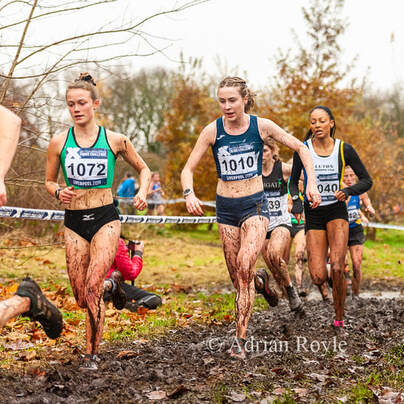
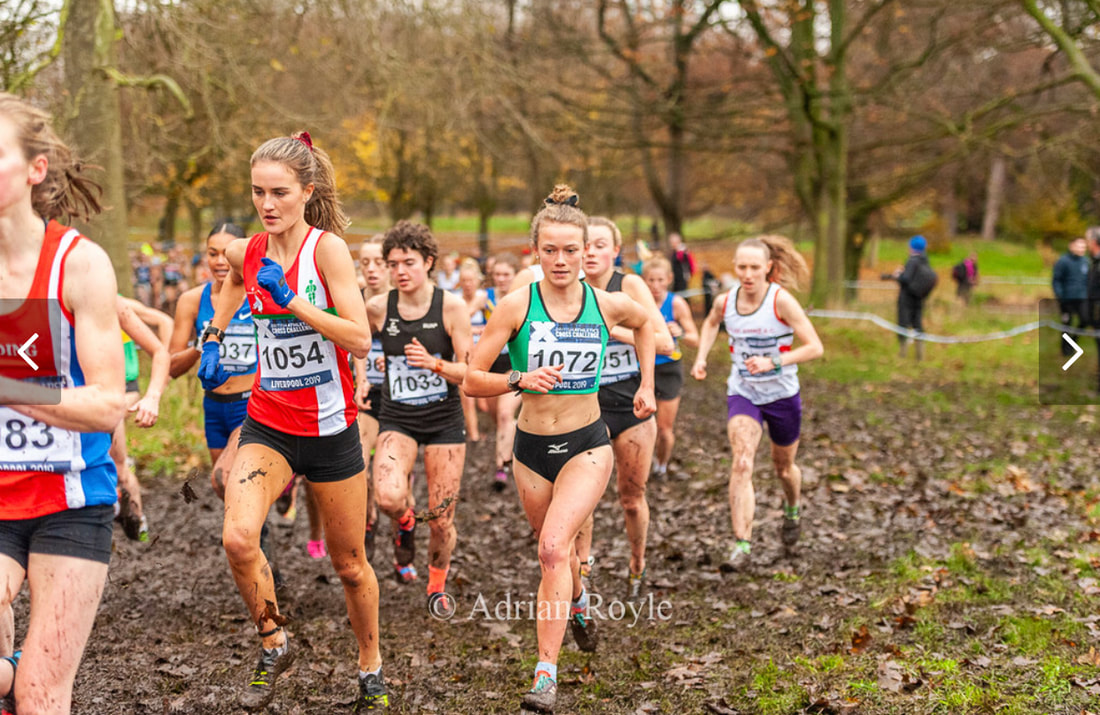


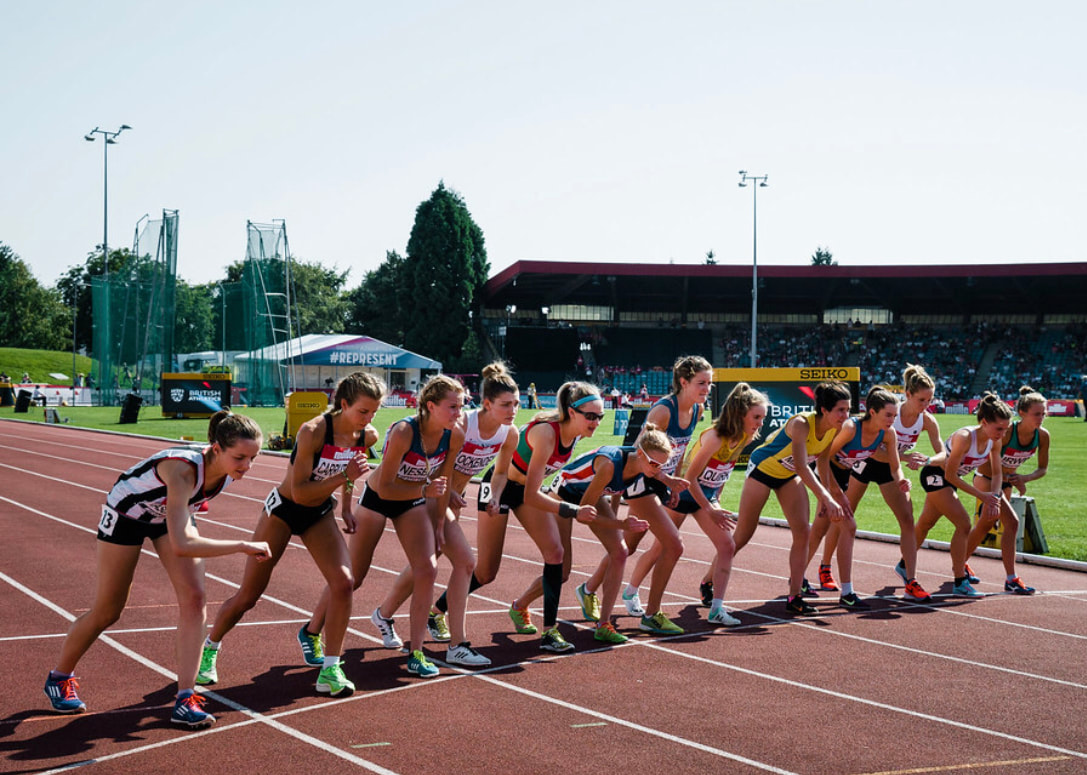



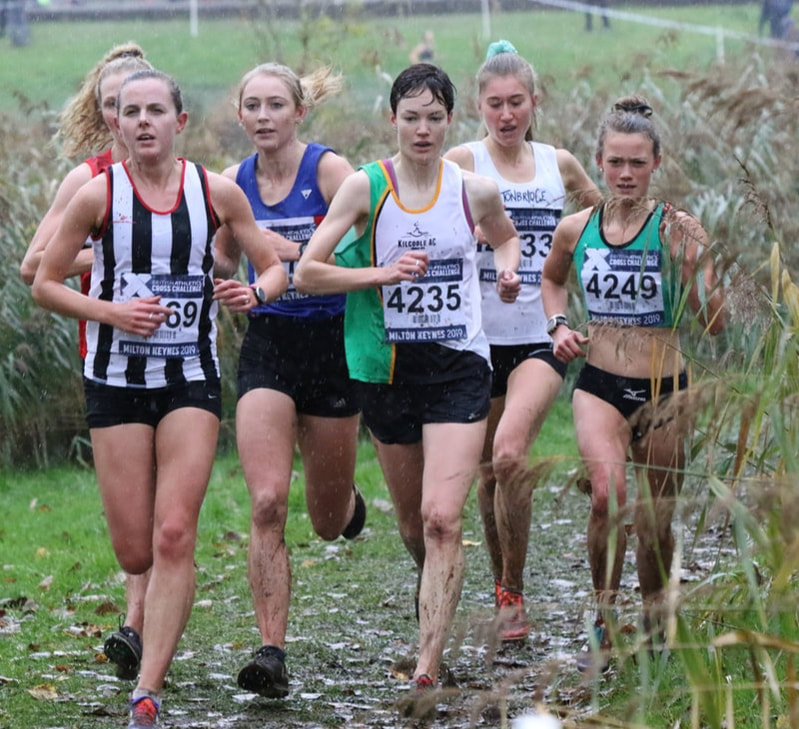

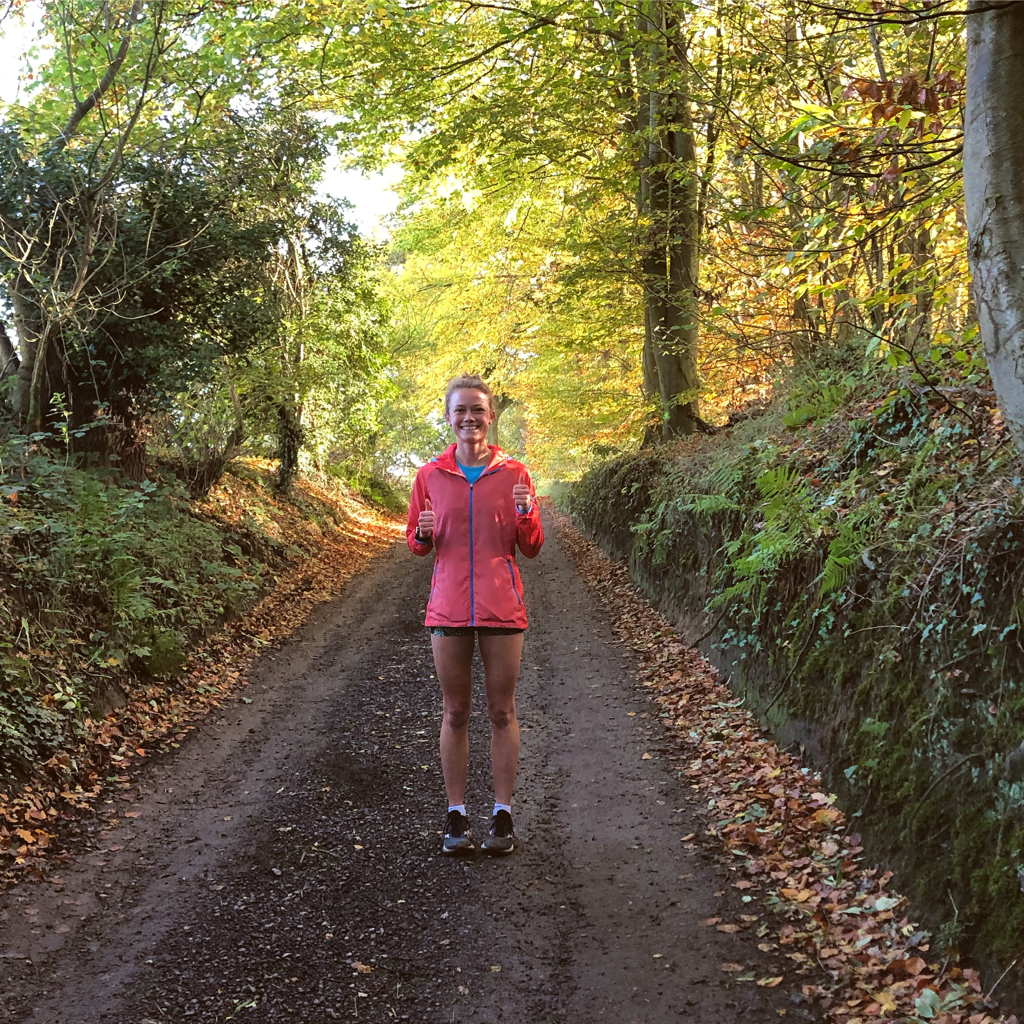
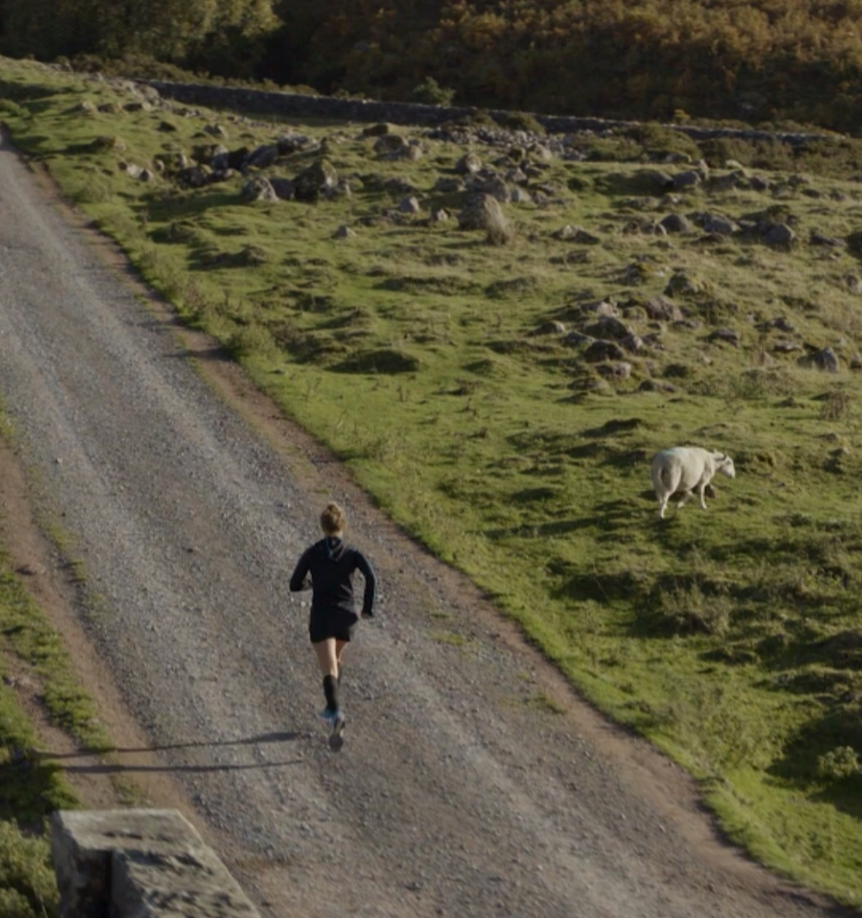

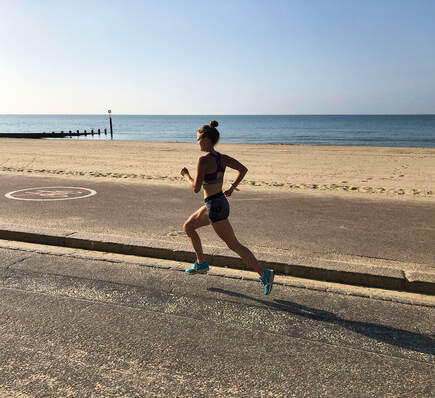
 RSS Feed
RSS Feed
